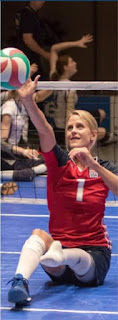Leadership.
We hear this word brought up in every team sport, from pee wee leagues to juniors to the Olympics and Professional Leagues.
We listen as coaches praise their team leaders, players who pay homage to those leaders and in some cases, when teams don't fulfill promise, it is often due to a lack of leadership.
John Kessel's coaching philosophy has been culled to just three words: "Develop amazing leaders!"
So why is it so hard to find them? Some schools have developed leadership academies. Some teams have leadership councils. Leadership in that buzzword that helps separate elite teams from the average.
Scanning the media world from the last few weeks might help us understand why.
The Arizona Cardinals lost their first 2022 playoff game last Sunday. Immediately after, their on the field leader, quarterback Kyler Murray was skewered by the punditry. The highest paid voice on ESPN called Murray's performance, "Atrocious!" He was labeled "too short" and that he "choked."
To his credit, and as a leader should, Murray took responsibility for his play, calling his play "disappointing." He gave credit to the Rams and made no excuses. He was being the leader of his team.
His coach, Kliff Kingsbury, was the Coach of the Year favorite in December. He was hired just three years ago, compiling 5-10, 8-8 and 11-6 seasons in his first three years. That in itself shows a definite trend upward. However, after the loss to the Rams, the calls for his firing began.
The Los Angeles Lakers, perhaps the premiere franchise in NBA history, was supposed to contend for a title this season. They added an all-star point guard to a team already with the best player in the modern era, Lebron James and one of the top 10 players in the league, Anthony Davis. This team won the Championship two years ago and adding Russell Westbrook would certainly put them on top again.
Even the youngest of players hear and see these criticisms. They are hard to miss as "content" becomes the bedrock of modern attention. It doesn't matter the people in positions of punditry have never played professional football or basketball, have never been in the locker rooms or know these coaches and players personally, it only matters that they make headlines spouting their ill conceived opinions for all to hear.
So why would anyone, ANYONE want to step into this maelstrom?
They don't.
For every leader being pummeled by the unintelligencia, there are others out there that have shown amazing leadership. But that isn't news. That doesn't drive likes and sell ads. We love the dirt.
How Karch Kiraly lead the women's USA team to a gold medal victory in Tokyo last year is a model of leadership. So too is the "Gov," Jordan Larson. the veteran on that team who put together zoom calls during the pandemic to keep the team together, who worked as hard or harder than anyone on the team to be in the best shape of her life for the competition and who appropriately killed the gold winning point for this country's first Olympic gold for a women's team.
What about the leadership shown by Lora Webster during the women's sitting Paralympic march toward a repeat gold medal? A calming voice, a mentor and mediator, she helped the team overcome their anxiety before the Games and their confidence during. Leaders are made, not born.
Every exceptional leader is different. Some call attention to themselves while others show humility and grace. They compliment others and stay out of the spotlight. Some are vocal and directive while others are quiet and lead by example. Sometimes a leader is born out of a life changing event or a part of their life that was a struggle.
It's no secret that humans don't like to be criticized. It often enlists a backlash of animosity and negative feelings. And leaders must endure this from time to time. Yet, every day is a new journey. Every match, every game, every serve is something different to learn from, take from and lead with.
Make it a priority. Give your team leadership opportunities before, during and after the season. Show them that criticism can be helpful, and that the carping from the uninformed critic is just noise. Help them learn to separate the valuable from the din.
"Leadership is not a position or a title, it’s action and example." Donald McGannon.
Let the search continue!






